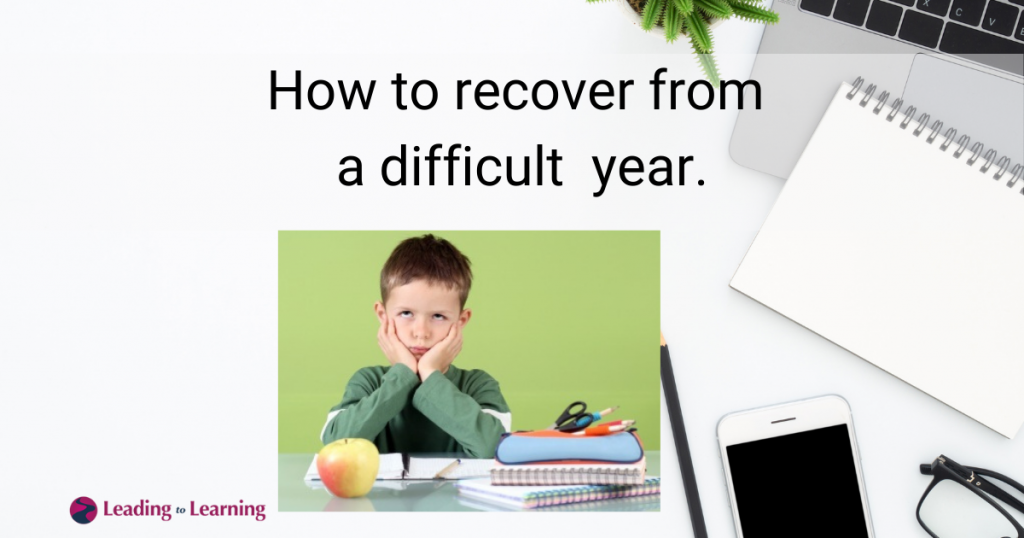Kids have been having a hard time.
During the pandemic they have been both isolated and restricted in what they can do.
They have had limited access to friends and space to move. They have become stressed and tired.
They spend less time outdoors and more time on screens.
They worry about falling behind at school, about Covid, about the effect of this time on their parents and on their future.
They are bored and have lost their motivation to do things they normally do.
Learning on-line is not the same as learning in class. Their education has suffered. They may not have covered the curriculum for their grade. They may have missed some important lessons. They may not have been getting the help they needed.
They need to catch up.
How are they going to do this?
You might think that cramming and organizing additional class time or tutor support is the answer. I have also read that some schools might expect students to cover two years’ worth of learning in one year.
Scary thoughts.
The last thing kids need at the moment, as we start coming out of the Covid crisis, is more stress.
Kids need a break.
Learning doesn’t happen when kids are stressed. Their brains are busy trying to handle all the pressures they are under and has little space or energy for new learning.
Kids learn best when they are feeling good. when they feel confident, in control, and happy.
This feeling of wellbeing unlocks their ability to learn and, in turn, learning helps them feel good about themselves.
How can we help kids nurture their emotional and physical wellbeing after months of lockdown and school closings when learning has become a struggle? What is the best way that can get kids ready for the new school year?
There is one simple answer, one simple prescription that can make this happen.
Children and teens need to play.
One study of 1,000’s of kids and teachers (reported by Josh Fullan) found that the ability to play was the best indicator of a child’s wellbeing and that those who played more learned more. The study also reported high levels of engagement in schoolwork, collaboration with others and the ability to concentrate and stick with a problem for longer.
Playing helped children have positive emotional, learning and physical health.
So play, already recognized for its benefits, might be the single dose prescription children need to reignite their love of learning.
But what is play? Play is the ability to have fun, to fool around, to enjoy oneself.
All kinds of play matter.
Your child could be making a TikTok video, riding a bike, playing football, making mud pies, running on the beach or collecting caterpillars.
He or she may be playing video games, building a fort from blankets, jumping around a chalked hopscotch pattern, decorating the sidewalk with chalk pictures. There is no hierarchy to play. All play is good. The more variety the better.
Children cannot drill or cram their way back to academic excellence without first rebuilding children’s social and emotional intelligence and helping them refocus and find a sense of purpose.
The old saying ‘All work and no play makes Jack a dull boy’ has never been truer. Kids’ lives are dull right now. They haven’t been able to play.
Rather than making them work by giving them more school like activities let them enjoy the summer, reset their feelings so they are ready to learn when the new school year starts.
Let the children play.
Your child might be ready to take full advantage of the summer. The screams of delight that come from the children in my neighbour’s garden are a source of joy to all who hear them. But if your child need encouragement and permission to play (some children are so scared of falling behind that they find the idea of playing too much to bear) do what you can to create a context where play can happen.
Go for a walk with your child, bake a cake, let your child run free (within safe limits) and reward them for having a good time. Go camping if you can – even if it means making a tent in the bedroom out of sheets. Play board games once a week. Encourage your child to make a video of their activities or about the family to share with trusted others.
Still worried about their ability to catch up with schoolwork? Concerned that your child may not be ready to learn when school starts? Don’t be.
Even the most unmotivated child can have their love of learning reignited when you use the simple strategies outlined in my course Success starts here https://leadingtolearning.com/Success.
It is easy for a child to lose their motivation to learn. I know that the difficult learning experiences of the last year have contributed to many children losing their love of learning.
Let them play. Then, if playing doesn’t do the trick and reinvigorate their desire to learn try the strategies in my course https://leadingtolearning.com/Success.
So how are you going to hep your child recover?





